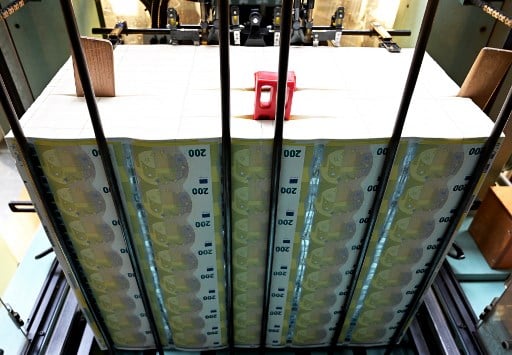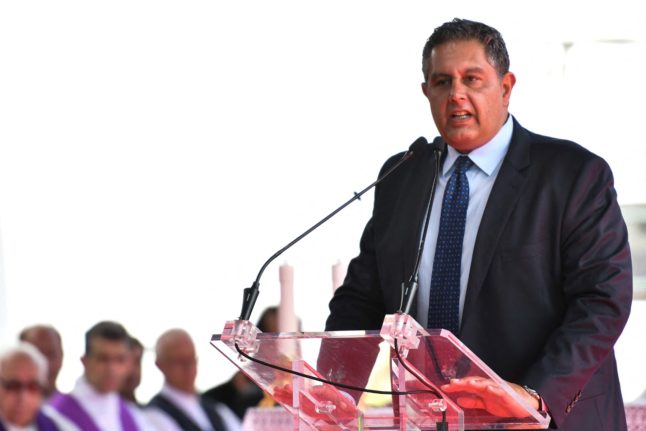The League party, which rules Italy in coalition with the Five Star movement, made the flat tax a flagship policy in its 2018 election campaign.
Almost a year after taking power, and emboldened by EU election results, the League is now pushing ahead with the proposal.
READ ALSO: European stocks drop as trouble brews between Rome and Brussels
Deputy Premier and Interior Minister Matteo Salvini said on Tuesday that his League party is proposing a flat tax that would strain the Italian budget by another €30 billion.
“Thirty billion euros, this is the proposal studied by the League's economist, documented cent by cent, that we are ready to take to the cabinet and parliament,” Salvini wrote as he announced his plan on Facebook.

Italian deputy prime minister, interior minister and League leader Matteo Salvini. Photo: AFP
At a time when Italy is already facing sanctions from Brussels over its budget and growing public debt – which is currently at 132.2 percent of GDP and set to reach a new record high in 2019 – it seems ike a big ask to find an extra €30 billion to fund the policy.
And that's just the League's own estimate. Other sources believe the real cost could be €60 billion or more.
Salvini said the proposal would bring down taxes for companies and families earning up to €50,000 a year.
So who benefits?
After initally proposing a flat tax of 15 percent, the party now proposes a two-tier flat tax of 15 percent on annual earnings of up to €80,000, and 20 percent for incomes above this threshold.
The 2019 budget law introduced a 15 percent rate for self-employed people on up to €65,000 a year.
Forza Italia politician Renato Brunetta said that the idea of the flat tax is to cause a “fiscal shock that will enable the country to escape the trap it's stuck in”, and increase growth levels to “more than three percent”.
READ ALSO: The little-known tax rule that's got the super-rich flocking to Italy
Capital Economics analyst Jack Allen told AFP he doubts the proponents' growth claims and believes that the wealthiest will benefit the most from the reform.
“A 2015 study by the Bank of Italy estimated that households with low wealth would respond to a one euro increase in disposable income resulting from a tax cut by raising their spending by 60 cents,” he says.
“High-wealth households … would increase spending by just 40 cents,” he said.The Italian economy is forecast to grow by just 0.1 percent this year, while Italy's own finance minister said growth will be “zero”.
The government is also working on a separate “growth decree” set to cut taxes for Italian companies, at a cost of 1.9 billion.
READ ALSO:



 Please whitelist us to continue reading.
Please whitelist us to continue reading.
Many expats here are retired on a drawdown basis. That means they have considerable discretion on how much to draw in any one year. Italy’s current tax rates make drawing down a last resort so the Italian state sees little of that money. Under the new proposals, many would draw down a great deal more. As a magazine for expats, shouldn’t you have thought of this and attempted to quantify it?